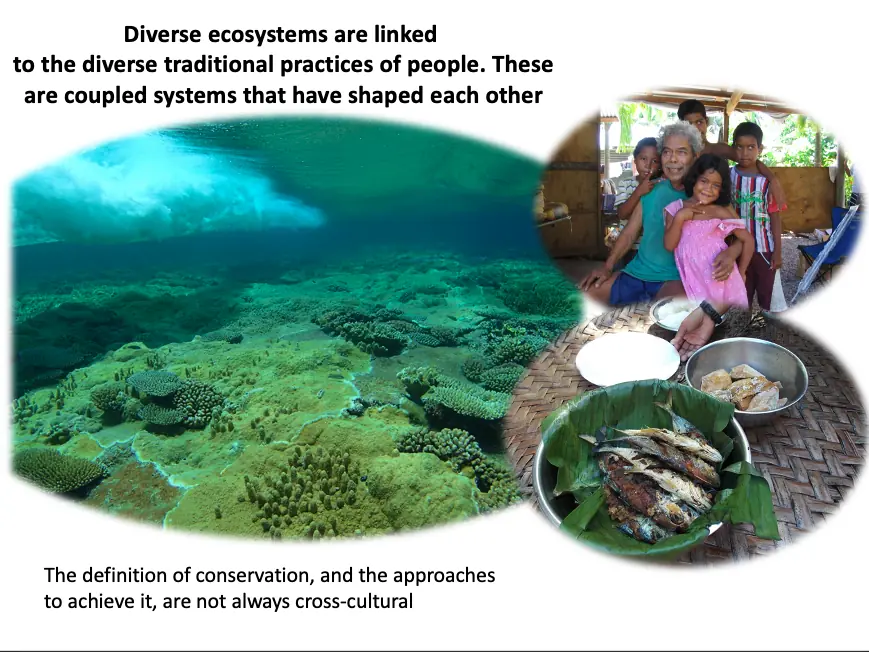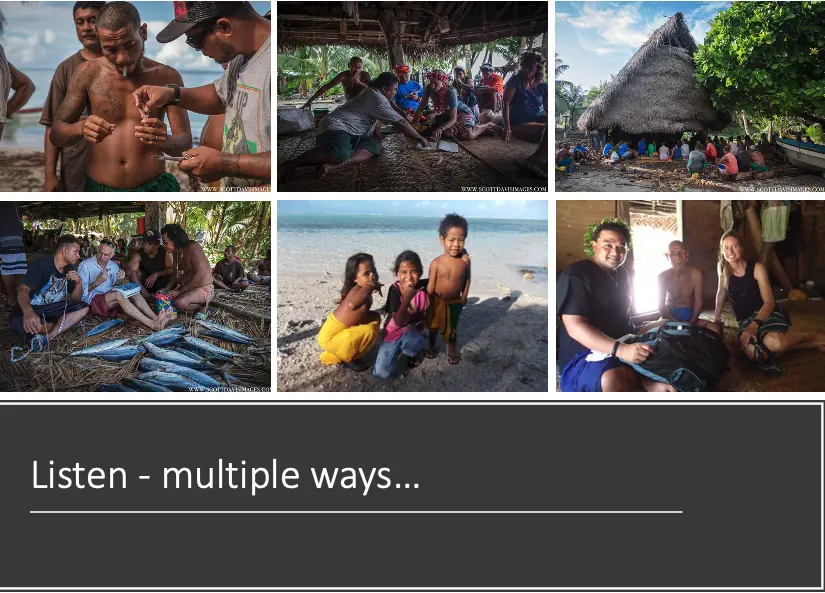Coupling Indigenous knowledge and ecogeochemistry in coral reef ecosystems

The outer islands of Yap (Federated States of Micronesia) offer a unique testbed for exploring the mechanistic socio-cultural and governance linkages between modernization of fishing practice and environmental health and resilience. Ulithi Atoll, the fourth largest Atoll in the World, represents an coupled Socio-Environmental System almost completely culturally and ecologically dependent on local coral reefs. Ulithi’s remoteness coupled with an autonomous governance system has led to a resource governance system that remains largely traditional and socially driven around community practices. However, since World War II occupation by the US, Ulithi has seen the introduction of several “individualistic” modern fishing technologies and practices, including: 1) motorboats and fuel, which have allowed for year-round site access relative to wind/current-driven sailing canoe, but also concentrated the localized fishing footprint as fuel cost became prohibitive and canoes less available, and 2) spearguns, which allow for targeted selection of species like herbivores and top predators with disproportionately important roles in coral reef ecosystem structure, function, and resilience relative to traditional hook & line/net fishing. We hypothesize that the introduction of these fishing technologies and practices, which lack historical precedent in governance system built on communal technology and practice, may create a mismatch or gap in the relationships among social dynamics, traditional governance, and ecosystem integrity.
This project brings together a collaborative, multidisciplinary team of US social and natural scientists and Ulithian community members, building upon a long-standing relationship among scientists and community members through the One People One Reef program in Ulithi Atoll. Our goal is to engage in convergence research around the feedback mechanisms among governance and decisions around marine resource extraction, the impacts of extraction on the marine environment health, and adaptive capacity of governance systems to accommodate changes to those relationships. This work aims to co-create solutions to marine resource management and environmental degradation through the integration of Western and Indigenous knowledge system. We focus on the introduction of modern, individualistic fishing technologies (motorboats and spearguns) with high ecological impact into otherwise relatively traditional, communal-based governance systems to serve as a model system for examining the role that fishing plays in social and ecological well-being of traditionally managed coral reef SESs.
